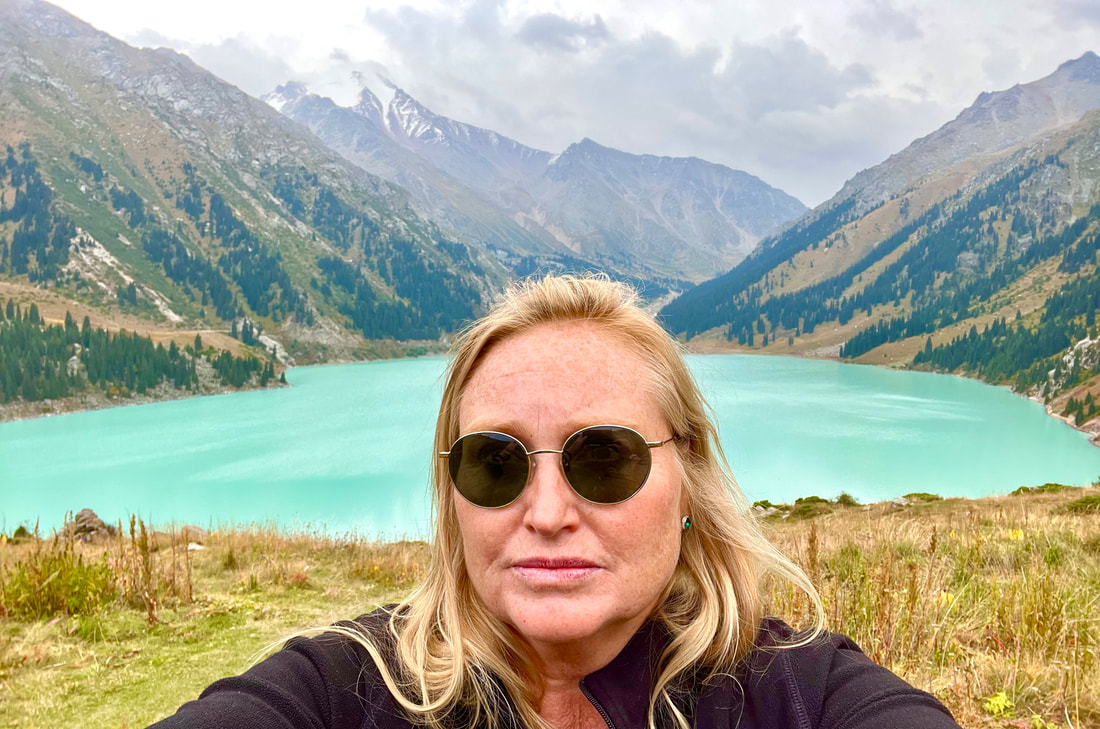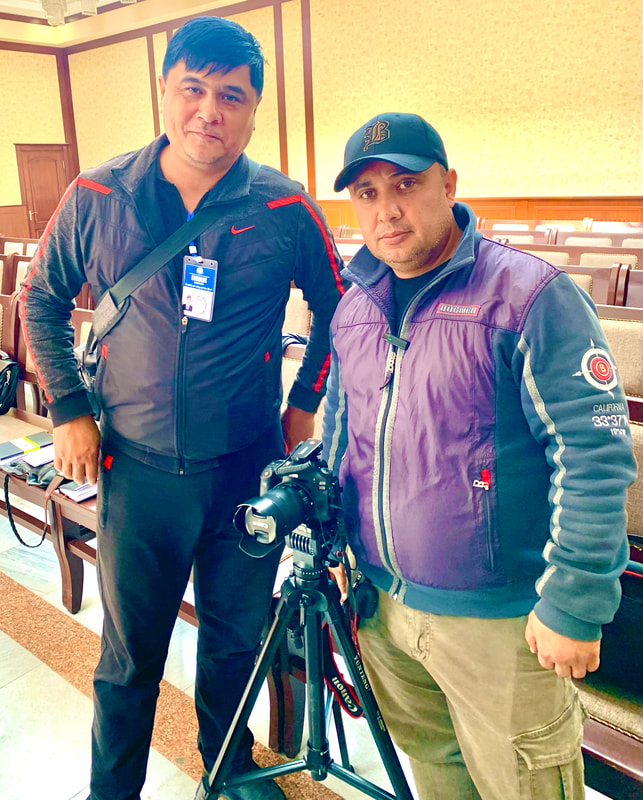|
Adilov Sirojiddin, left, and Otabek Djuraev, are two bloggers in Uzbekistan who are pushing for free speech in their country. Meet the defenders of free speech in Uzbekistan: Gonzo-style bloggers. These are the folks who are testing the redlines of what writers and videographers in this country can report and post. These bloggers aggressively film wrongdoing, take up causes of people who pay them as well as those they feel driven to defend. They tend to be more outspoken and brazen than most journalists here.
Bloggers in Uzbekistan are a hybrid of western bloggers and influencers. While bloggers in the U.S. mostly write commentary and influencers mostly hawk products, here bloggers maintain popular news channels on social media, especially Telegram and Youtube, many with paid advertisements. The worst kind of bloggers here blackmail and extort people to pay them so that they don't post embarrassing videos or report about their corruption. The case of Otabek Sattoriy, a blogger convicted last year of defamation and extortion and now serving a six-and-a-half-year prison sentence, illustrates the tension between sanctioned (ie. controlled) journalism and rogue bloggers. On Wednesday, Sattoriy's appeal was heard in the Uzbekistan Supreme Court. His three lawyers each presented arguments that Sattoriy was exposing corruption and said the government's case against him was trumped up to stop his aggressive reporting. The three judge panel is reviewing the lawyers' arguments and will announce their decision next week. I'm told that Sattoriy's lower court hearings drew hordes of journalists. So I was surprised that there were less than a dozen media and mostly bloggers at Sattoriy's Supreme Court hearing. "We came because we want to prevent future cases for ourselves and other bloggers," explained Adilov Sirojiddin, a Youtube blogger with over 400,000 subscribers. He's also a reporter for Ezgulik, a human rights group. "If he’s made a mistake, we want to learn from this. There should be transparency in our country. We should be able to openly speak as journalists and bloggers and no prosecutors should prosecute us." There are no protections for bloggers in this country. The Agency for Mass Media—aka the government censors— dismiss bloggers as "active citizens." "There is nothing about bloggers in the legislation," Mamurjon Parpiev, head of media development at The Agency, told me. "Everyone who owns a telephone is a potential blogger. Thirty million people in Uzbekistan could be potential bloggers." Most bloggers here make the bulk of their money through advertisements on Youtube channels. In the past, most of those advertisements came from Russia, but with sanctions most Russian advertisements have stopped. "Bloggers are for sensation, loud speak. Others are looking for shock," Sirojiddin explains. "Those covering this hearing today are interested in the fate of Sattoriy. No one is paying us to be here." Otabek Djuraev, a Youtube blogger who has 352,000 followers, sees bloggers as more altruist, a kind of paid advocate. "Bloggers help people with basic problems," he said. "Bloggers get results for people who need help. I have helped many people because I can write what I want and I don't have to turn my story into a head editor who can kill it." I'm hearing a lot about editors in this country who kill stories because of threats from the security services (think Russian-styled KGB) in this country. And I'm hearing from journalists who are tired of fighting with such editors to get stories published. Djuraev and Sirojiddin say they don't hide that they ask for support from "businessmen and rich people." They are self-financed and pay for their own equipment, travel, hotel and fuel costs to cover stories all over the country. They argue that journalists have their own agendas and censor coverage, while bloggers stream entire events, providing hours of coverage. I found this to be true when I discovered that Sirojiddin posted an excruciatingly boring 12-minute video of me interviewing bloggers. Within 20 hours the post had 112 comments and more than 4,000 views. Many comments expressed bold, anti-government sentiments. If you want, you can check out the video here. Official journalists argue that these bloggers are not trained; they don't know the ethics of journalism; "it's just a business." This argument strikes me as hypocritical because editors at some of the most popular media sites regularly kill stories they fear will upset the government in order to stay in business—to keep making money. The government has taken several media outlets offline for days in the past and its security service routinely asks investigative reporters for "friendly chats." (More about this in a future post.) Some journalists here sympathize with editors who are pressured by the security services. This is the way it is in Uzbekistan, they argue. But I've interviewed many brave journalists in other post-Soviet countries with more draconian media restrictions—places like Belarus and Azerbaijan— who continue to report the truth even though they are regularly followed, harassed by the government and even imprisoned. Djuraev says he continues to writes what he believes is the truth even though he says he's been summoned to the prosecutor's office three times. My translator, Askar Djuraev, explained it this way: "When you think of journalists in this country, you think of people who work for the state. But bloggers are independent. They tell the truth." Comments are closed.
|
Fulbright in Central AsiaFrom March, 2022 to January of 2023, I was a Fulbright Scholar with the U.S. State Department in post-Soviet Central Asia. My previous Fulbright was in Ukraine. For the past six years, I have reported on journalists from post-Soviet countries who have experienced retaliation for reporting the truth. Archives
January 2023
|


 RSS Feed
RSS Feed
